2017 October
About Andrew Cusack
 Writer, web designer, etc.; born in New York; educated in Argentina, Scotland, and South Africa; now based in London.
Writer, web designer, etc.; born in New York; educated in Argentina, Scotland, and South Africa; now based in London. read more
News
Blogs
Reviews & Periodicals
Arts & Design
World
France
Mitteleuropa
Knickerbockers
Argentina
The Levant
Africa
Cape of Good Hope
Netherlands
Scandinavia
Québec
India
Muscovy
Germany
Academica
‘The right thing to do is to act virtuously, rather than just talk about doing so’
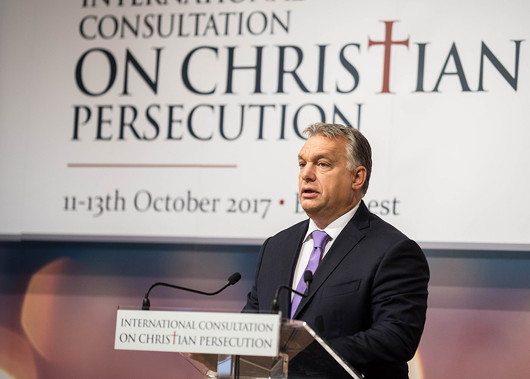
Welcome to Budapest. Today I do not wish to talk about the persecution of Christians in Europe. The persecution of Christians in Europe operates with sophisticated and refined methods of an intellectual nature. It is undoubtedly unfair, it is discriminatory, sometimes it is even painful; but although it has negative impacts, it is tolerable. It cannot be compared to the brutal physical persecution which our Christian brothers and sisters have to endure in Africa and the Middle East. Today I’d like to say a few words about this form of persecution of Christians. We have gathered here from all over the world in order to find responses to a crisis that for too long has been concealed. We have come from different countries, yet there’s something that links us – the leaders of Christian communities and Christian politicians. We call this the responsibility of the watchman. In the Book of Ezekiel we read that if a watchman sees the enemy approaching and does not sound the alarm, the Lord will hold that watchman accountable for the deaths of those killed as a result of his inaction.
Dear Guests,
A great many times over the course of our history we Hungarians have had to fight to remain Christian and Hungarian. For centuries we fought on our homeland’s southern borders, defending the whole of Christian Europe, while in the twentieth century we were the victims of the communist dictatorship’s persecution of Christians. Here, in this room, there are some people older than me who have experienced first-hand what it means to live as a devout Christian under a despotic regime. For us, therefore, it is today a cruel, absurd joke of fate for us to be once again living our lives as members of a community under siege. For wherever we may live around the world – whether we’re Roman Catholics, Protestants, Orthodox Christians or Copts – we are members of a common body, and of a single, diverse and large community. Our mission is to preserve and protect this community. This responsibility requires us, first of all, to liberate public discourse about the current state of affairs from the shackles of political correctness and human rights incantations which conflate everything with everything else. We are duty-bound to use straightforward language in describing the events that are taking place around us, and to identify the dangers that threaten us. The truth always begins with the statement of facts. Today it is a fact that Christianity is the world’s most persecuted religion. It is a fact that 215 million Christians in 108 countries around the world are suffering some form of persecution. It is a fact that four out of every five people oppressed due to their religion are Christians. It is a fact that in Iraq in 2015 a Christian was killed every five minutes because of their religious belief. It is a fact that we see little coverage of these events in the international press, and it is also a fact that one needs a magnifying glass to find political statements condemning the persecution of Christians. But the world’s attention needs to be drawn to the crimes that have been committed against Christians in recent years. The world should understand that in fact today’s persecutions of Christians foreshadow global processes. The world should understand that the forced expulsion of Christian communities and the tragedies of families and children living in some parts of the Middle East and Africa have a wider significance: in fact they threaten our European values. The world should understand that what is at stake today is nothing less than the future of the European way of life, and of our identity.
Ladies and Gentlemen,
We must call the threats we’re facing by their proper names. The greatest danger we face today is the indifferent, apathetic silence of a Europe which denies its Christian roots. However unbelievable it may seem today, the fate of Christians in the Middle East should bring home to Europe that what is happening over there may also happen to us. Europe, however, is forcefully pursuing an immigration policy which results in letting extremists, dangerous extremists, into the territory of the European Union. A group of Europe’s intellectual and political leaders wishes to create a mixed society in Europe which, within just a few generations, will utterly transform the cultural and ethnic composition of our continent – and consequently its Christian identity.
Ladies and Gentlemen,
We Hungarians are a Central European people; there aren’t many of us, and we do not have a great many relatives. Our influence, territory, population and army are similarly not significant. We know our place in the ranking of the world’s nations. We are a medium-sized European state, and there are countries much bigger than us which should, as a matter of course, bear a great deal more responsibility than we do. Now, however, we Hungarians are taking a proactive role. There are good reasons for this. I can see – and I know through having met them personally – how many well-intentioned truly Christian politicians there are in Europe. They are not strong enough, however: they work in coalition governments; they are at the mercy of media industries with attitudes very different from theirs; and they have insufficient political strength to act according to their convictions. While Hungary is only a medium-sized European state, it is in a different situation. This is a stable country: the political formation now in office won two-thirds majorities in two consecutive elections; the country has an economic support base which is not enormous, but is stable; and the public’s general attitude is robust. This means that we are in a position to speak up for persecuted Christians. In other words, in such a stable situation, there could be no excuse for Hungarians not taking action and not honouring the obligation rooted in their Christian faith. This is how fate and God have compelled Hungary to take the initiative, regardless of its size. We are proud that for more than a thousand years we have belonged to the great family of Christian peoples. This, too, imposes an obligation on us.
Dear Guests,
For us, Europe is a Christian continent, and this is how we want to keep it. Even though we may not be able to keep all of it Christian, at least we can do so for the segment that God has entrusted to the Hungarian people. Taking this as our starting-point, we have decided to do all we can to help our Christian brothers and sisters outside Europe who are forced to live under persecution. What is interesting about this decision is not the fact that we are seeking to help, but the way we are seeking to help. The solution we settled on has been to take the help we are providing directly to the churches of persecuted Christians. We are not using the channels established earlier, which seek to assist the persecuted as best they can within the framework of international aid. Our view is that the best way to help is to channel resources directly to the churches of persecuted communities. In our view this is how to produce the best results, this is how resources can be used to the full, and this is how there can be a guarantee that such resources are indeed channelled to those who need them. And as we are Christians, we help Christian churches and channel these resources to them. I could also say that we are doing the very opposite of what is customary in Europe today: we declare that trouble should not be brought here, but assistance must be taken to where it is needed.
Dear Friends,
Our approach is that the right thing to do is to act virtuously, rather than just talk about doing so. In this way we avoid doing good things simply in order to burnish our reputation: we avoid doing good things out of calculation, as good deeds must come from the heart, and for the glory of God. Yet now it is my duty to talk about the facts of good deeds. My justification, the reason I am telling you all this, is to prove to us all that politics in Europe is not necessarily helpless in the face of the persecution of Christians. The reason I am talking about some good deeds is that they may serve as an example for others, and may induce others to also perform good deeds. So please consider everything that I say now in this light. In 2016 we set up the Deputy State Secretariat for the Aid of Persecuted Christians, which – in cooperation with churches, non-governmental organisations, the UN, The Hague and the European Parliament – liaises with and provides help for persecuted Christian communities. We listen to local Christian leaders and to what they believe is most important, and then do what we have to. From them I have learnt that the most important thing we can do is provide assistance for them to return home to resettle in their native lands. We Hungarians want Syrian, Iraqi and Nigerian Christians to be able to return as soon as possible to the lands where their ancestors lived for hundreds of years. This is what we call Hungarian solidarity – or, using the words you see behind me: “Hungary helps”. This is why we decided to help rebuild their homes and churches; and thanks to Hungarian Interchurch Aid, in Iraq, Syria and Lebanon we also build community centres. We have launched a special scholarship programme for young people raised in Christian families suffering persecution, and I am pleased to welcome some of those young people here today. I am sure that after their studies in Hungary, when they return to their communities, they will be active, core members of those communities. And we are also working in cooperation with the Pázmány Péter Catholic University on the establishment of a Hungarian-founded university. The Hungarian government has provided aid of 580 million forints for the rebuilding of damaged homes in the Iraqi town of Tesqopa, as a result to which we hope that hundreds of Iraqi Christian families who now live as internal refugees may be able to return to their homes. We likewise support the activities of the Syriac Catholic Church and the Syriac Orthodox Church. I should also mention something which perhaps does not sound particularly special to a foreigner, but, believe me, here in Hungary is unprecedented, and I can’t even remember the last time something like it happened: all parties in the Hungarian National Assembly united to support adoption of a resolution which condemns the persecution of Christians, supports the Government in providing help, condemns the activities of the organisation called Islamic State, and calls upon the International Criminal Court to launch proceedings in response to the persecution, oppression and murder of Christians.
Ladies and Gentlemen,
When we support the return of persecuted Christians to their homelands, the Hungarian people is fulfilling a mission. In addition to what the Esteemed Bishop has outlined, our Fundamental Law constitutionally declares that we Hungarians recognise the role of Christianity in preserving nationhood. And if we recognise this for ourselves, then we also recognise it for other nations; in other words, we want Christian communities returning to Syria, Iraq and Nigeria to become forces for the preservation of their own countries, just as for us Hungarians Christianity is a force for preservation. From here I also urge Europe’s politicians to cast aside politically correct modes of speech and cast aside human rights-induced caution. And I ask them and urge them to do everything within their power for persecuted Christians.
Soli Deo gloria!
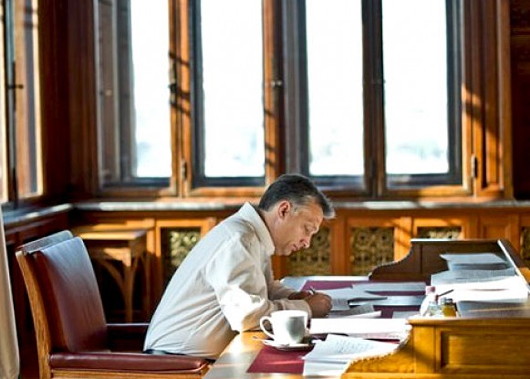
Gallen-Kallela at the National Gallery
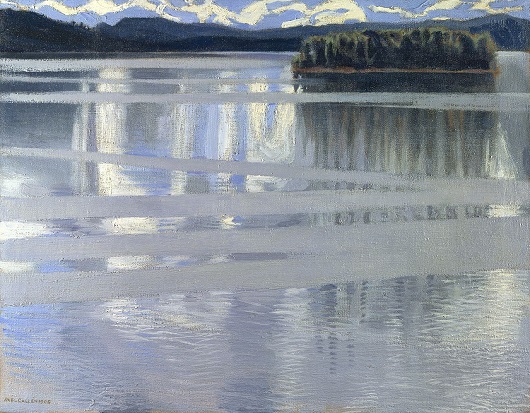
From November 15 until February of next year, the National Gallery here in London will mark the centenary of Finnish independence with a showing of the works of Akseli Gallen-Kallela. The Finnish painter is best known for his depictions of the Kalevala, the national epic compiled by Lönnrot and an influence on Tolkien.
The National Gallery, however, has focused on bringing together all four versions of Gallen-Kallela’s painting of Lake Keitele (alongside similar works by the artist). As a Swedish-speaking Finn, he signed the painting with his original Swedish name, Axel Waldemar Gallén, which he later Finnicised in 1907.
During Finland’s Civil War, Gallen-Kallela and his son Jorma both took up arms on the side of the Whites, who defended the country from the Soviet-backed Reds. The artist (below) served as adjutant to the regent of the kingdom, Gen Mannerheim, who asked him to design the flag, uniforms, and decorations of the new state. His student Eric O. Ehrström designed a crown for the kingdom, but eventually a republican form of government was decided upon and it wasn’t til the 1980s that a mock-up of the crown was actually crafted.
Having lived in Berlin and Kenya as well as having toured the United States, Gallen-Kallela’s influences were varied but he found the story and scenery of his homeland the most compelling of all. A fitting tribute to Finland in her hundredth year of statehood.
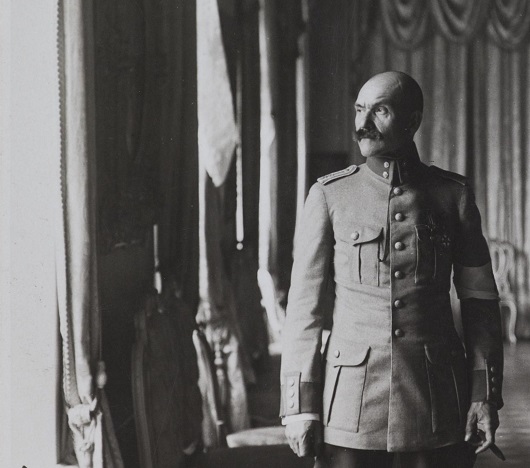
Pimlico Forever – Belgravia Never!
It started with hints and rumours, ill-whispered talk on street corners and tiny little changes, but now it’s all gone too far. You see, Pimlico, the quarter of London in which I dwell, seems under threat of annexation by its far grander but past-its-prime neighbour Belgravia.
It all seemed quite amusing at first. One day I came home to our humble address in Pimlico and was surprised to find the Belgravia Residents Journal amongst our post. Then Tatler nailed its colours to the mast and claimed the Italian coffee shop on our Pimlico street corner is in Belgravia. I went to my bank branch the other day to sort out a minor matter of travel insurance only to notice ‘Belgravia branch’ spelled out in clear concise Helvetica letters. Was that always there? I wondered.
Residents are befuddled and confused for the most part. No one’s quite sure what’s going on. Memories of “Passport to Pimlico” are exchanged — “Blimey! I’m a foreigner!” Concerns that Cambridge Street Kitchen (or at least its Cocktail Cellar) may be in on the move. “Isn’t this place a bit Elizabeth Street?” she said, sipping a Mexcal Negroni.
Landlords in particular are viewed as being suspiciously complicit in Belgravian expansionism. It’s widely assumed that speculators are keen to turn our beautiful whitewashed Pimlico homes (most of them long since divvied into flats) into the embassies, cultural institutes, and the bland organisational headquarters for which Belgravia is known.
“Do you think we’ll get some embassies after we join Belgravia?” one resident asks. Another points out we already host three: Lithuania, Albania, and Mauritania. “Perhaps we could get Sweden. Do you think we could get Sweden?” No one seems to know.
Some pooh-pooh the entire idea as hyped-up nonsense. “What on earth would Belgravia want from us here in Pimlico? Her Majesty’s Passport Office? The Queen Mother Sports Centre? The Catholic Bishops Conference? The flippin’ UK Statistics Authority?” (I admit, I had no idea the UK Statistics Authority is based here in Pimlico.)
Others prepare for collaboration. “We’ve always considered this Lower Belgravia,” Dr O’Donnell says with a wry smile.
Still, there is talk of resistance. Estate agents have reportedly been threatened with the use of force by mysterious figures in black cagoules. Suggestions of pre-emptive action, or recourse to the Court of Justice in Strasbourg. Should we strike first? Enclaves of Pimlico the other side of Buckingham Palace Road, like the pool hall in Ebury Square, could be used as springboards for a more active approach. The Filipino ladies in the Padre Pio shop on Vauxhall Bridge Road seem blissfully unaffected.
Confusion reigns, uncertainty is rampant, no one knows what the future holds.
Hoarding has commenced and local shops are quickly selling out of useful products (bog roll, Pringles, gin, etc.).
From St George’s Square to Victoria Station, fear grips the streets. At least its stopped people talking about Brexit.
The ‘Other Modern’ in Portugal
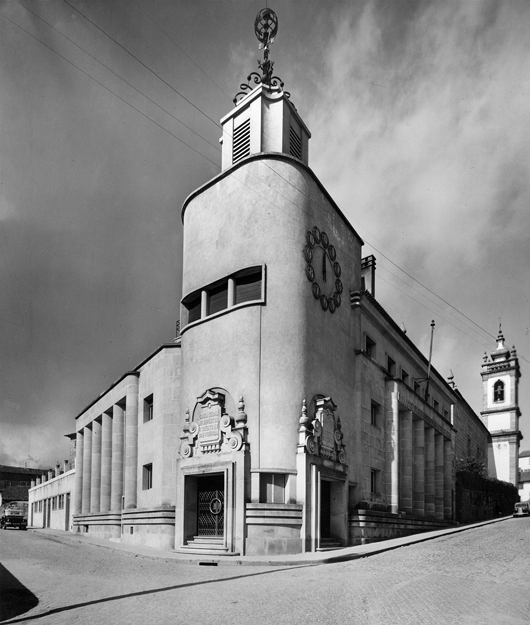
Guarda, Portugal; 1939–1942
[A] core aspiration can be discerned that runs through the entire [architectural] output of the “Estado Novo”, particularly from the second half of the 1930s. It is a catchphrase, never defined with absolute clarity and therefore tested by approximation, trial and error: the demand for a national modern style, a construction style that was at the same time contemporary and suited to the locality and/or specificity of the country. This agenda accommodated various formulations, depending on the evolution of the regime itself, the type of public building in question, the place for which it was intended, the profile of the people responsible for its appraisal and the margin granted to the architect-designer. […]
Salazarism never upheld anachronism or the practice of an archaeological type of architecture. It did not reject modernity entirely, but disliked disaggregating, standardising, stateless foreignness, embodied in its view by the architectural abstractionist internationalism (dubbed “boxes”). An alternative modernity was thus aspired to and achieved; far from being an exclusive diktat of the state, this idea of an alternative modernity pervaded the discourses of the timid specialist press, the opinions generally expressed by the civil society and the dilemmas of the architects themselves.
RIHA Journal 133, 15 July 2016
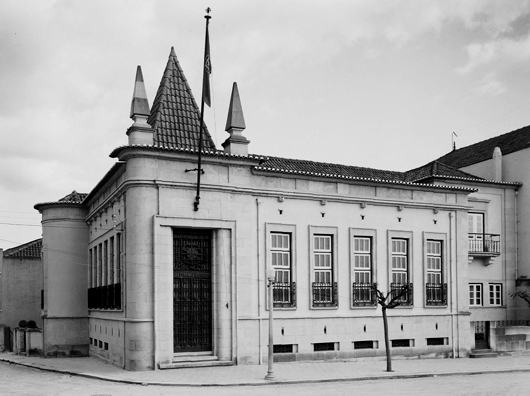
See also: The Other Modern
Lisbon
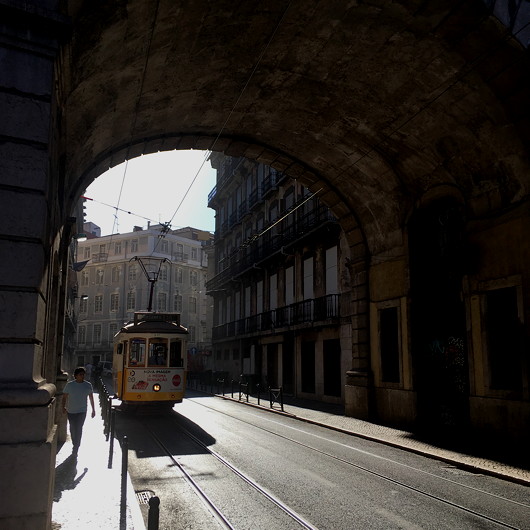
One of the finest cities I have had the privilege of visiting, only lightly touched by the grim hand of modernism.
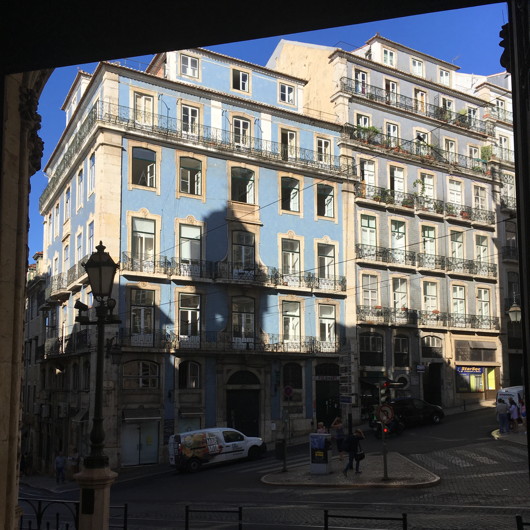
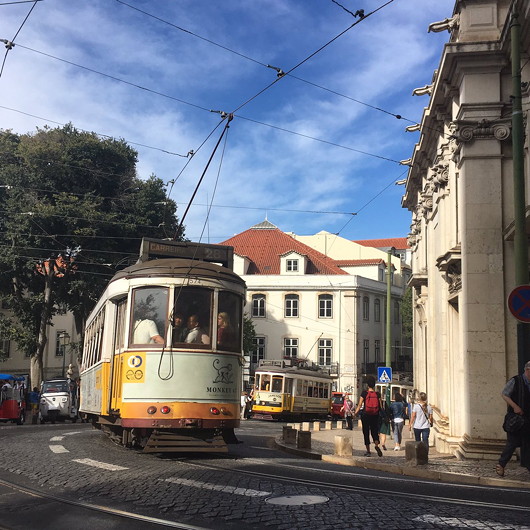
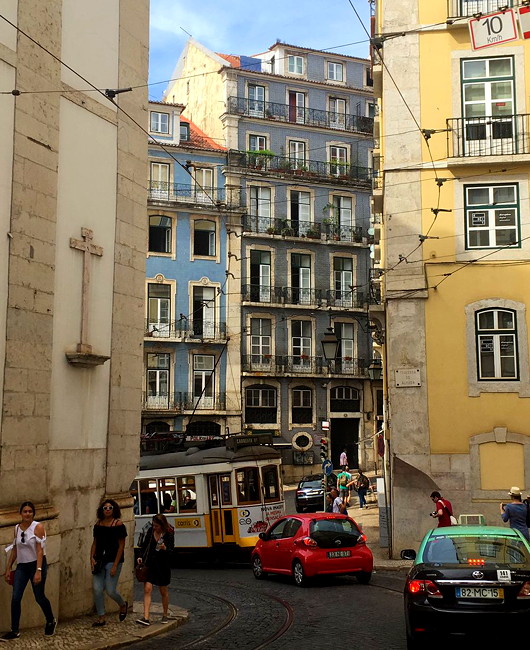
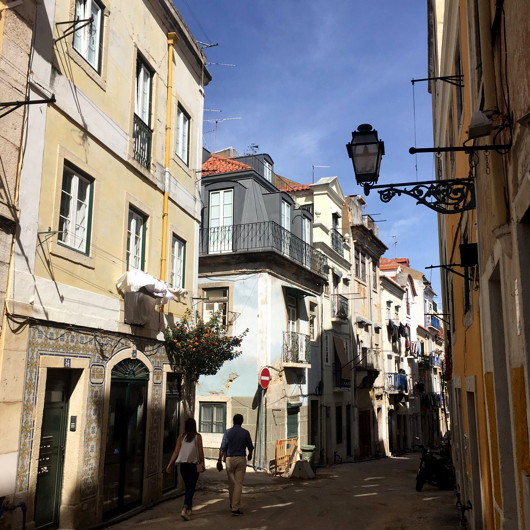
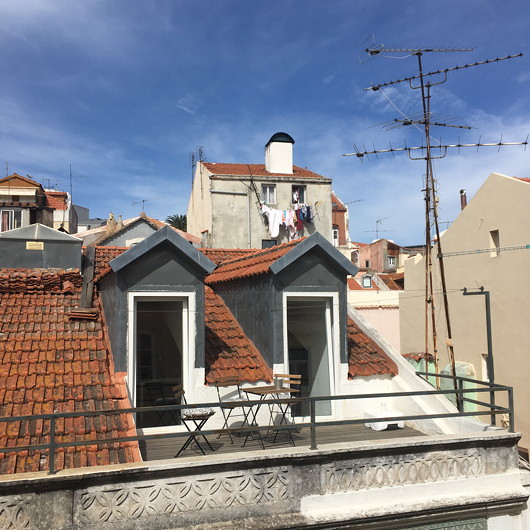
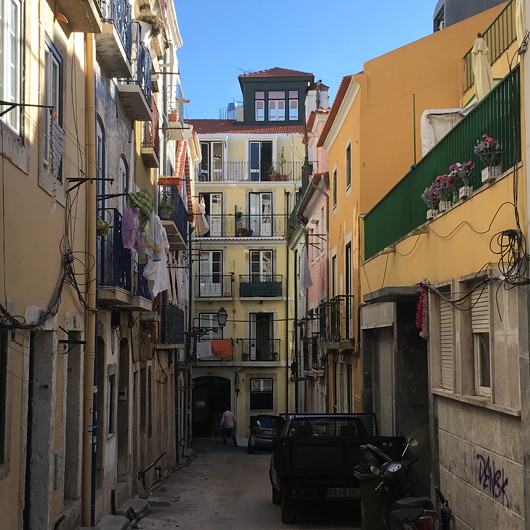
Search
Instagram: @andcusack
Click here for my Instagram photos.Most Recent Posts
- Silver Jubilee November 21, 2024
- Articles of Note: 11 November 2024 November 11, 2024
- Why do you read? November 5, 2024
- India November 4, 2024
- The Lithe Efficiency of the Old Constitution November 4, 2024
Most Recent Comments
Book Wishlist
Monthly Archives
Categories


